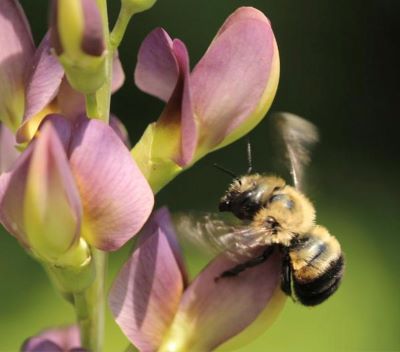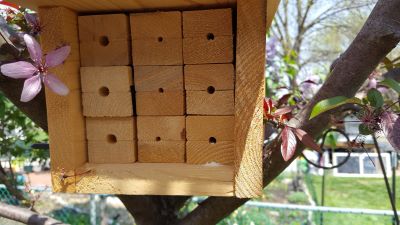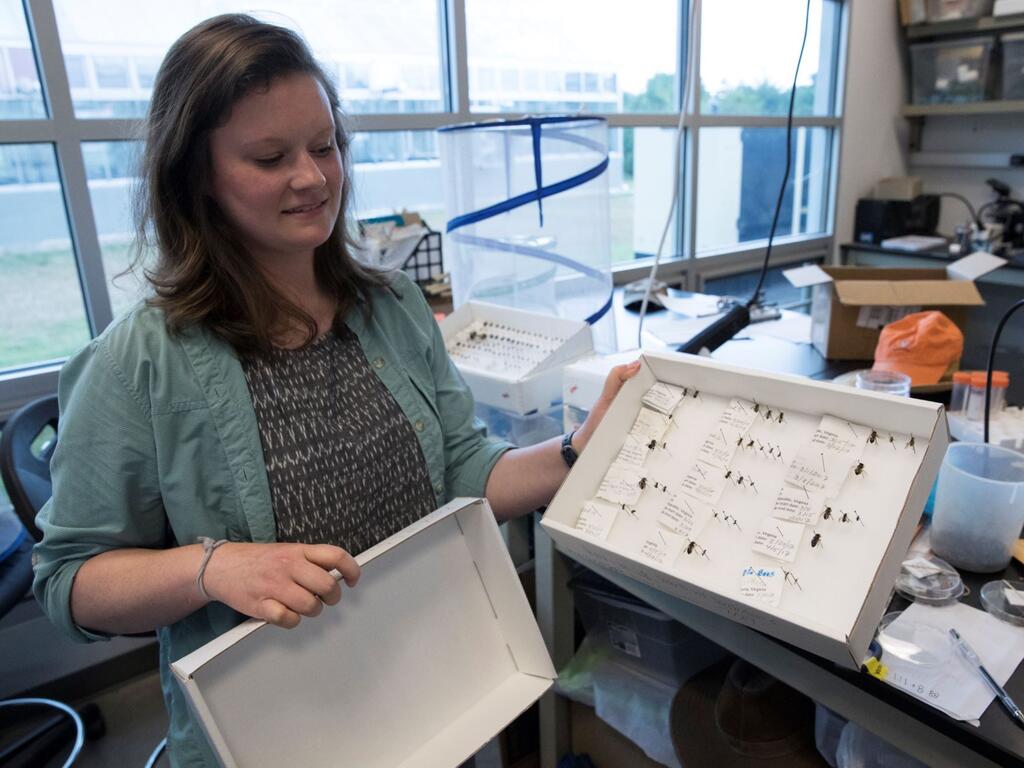“How can we save the bees?” Dr. Kate LeCroy, assistant professor of biology at Rhodes College, is on a quest to find a solution to this pressing question. To help fund her research, she has received over $100,000 in a grant from the United States Department of Agriculture’s (USDA) National Institute of Food and Agriculture to specifically study disease dynamics and health outcomes of mason bee communities across urban, agricultural, and natural landscapes.
LeCroy’s research stems from her fascination with the world of pollination and how pollinator declines may be impacting agricultural systems. Her project, titled “Discerning the Impact of Non-Native Fungal Associates (Ascosphaera spp.) on Managed Pollinator Health and Decline of Native Mason Bees,” will run through June 2025.

Mason bees, which are native to most parts of the country and common in gardens, are solitary, meaning they work alone rather than relying on a colony, such as honey bees and bumble bees do. Mason bees also are among the managed groups of bees used across the country to pollinate crops, and some mason bee species have been introduced from Asia for crop pollination in the United States. However, the parasites and pathogens of these introduced mason bees may “spill over” and infect native mason bees species, resulting in death and the collapse of diverse bee communities in North America. This scenario is harmful for many crop pollination systems because wild bee species contribute substantially to crop pollination, providing a type of “pollination insurance policy” when managed bees suffer losses during the crop growing season, which is common.
A big threat to bee health is the fungal pathogen Ascosphaera, which causes the larval disease chalkbrood. LeCroy has documented new species of this fungus to North America, which were brought over by non-native mason bees. The goal of her research is to identify how Ascosphaera shapes disease outcomes in the species, in hopes of preventing infection and supporting crop production.
In partnership with Rhodes students and community scientists, LeCroy will collect mason bee nests and employ high-throughput sequencing, fungal culturing techniques, and larval measurements. “My development as a professional scientist has always been rooted in trying to figure out answers to the public’s questions as well as longstanding academic unknowns,” said LeCroy. “The research I’m doing with this grant involves working with community scientists who help me find mason bees in their own backyards, and then I evaluate how healthy those mason bees are, especially looking for any disease-causing organisms inside the bee nests.

“I've built very meaningful relationships with community scientists in prior research, and they give so much more meaning and great stories behind data we discover. I think these kinds of relationships with the community are powerful for building a society’s collective literacy and trust in science.”
In addition to partnering with community scientists in Memphis, the surrounding towns in Tennessee, and in surrounding states, LeCroy will involve undergraduate researchers at Rhodes in data discovery.
LeCroy joined Rhodes’ Department of Biology during the 2023-2024 academic year, after serving as a postdoctoral research fellow at Cornell University, where the USDA originally funded her project. “I was able to re-apply for the grant and formally transfer my project and remaining funds to Rhodes,” said LeCroy.
She received a Ph.D. from the University of Virginia in 2021 and has taught undergraduates about the diversity, ecology, and conservation of the 20,000 species of bees worldwide. “I joined the Rhodes community because I love mentoring and supporting undergraduate students and their diverse journeys,” said LeCroy. “They don’t have to become the next expert on bees, but by participating in the research process, they’ll acquire crucial transferable skills that prepare them for all kinds of rewarding career paths.”
LeCroy will be teaching a course open to the public about bee diversity and conservation through Rhodes’ Meeman Center for Lifelong Learning during the month of October. More information and registration details.
This news article is in reference to work supported by the intramural research program of the U.S. Department of Agriculture, National Institute of Food and Agriculture Pollinator Health: Research and Application Program Award number 2022-67012-42970. The findings, conclusions, or recommendations expressed in this news article have not been formally disseminated by the U.S. Department of Agriculture and should not be construed to represent any agency determination or policy.
